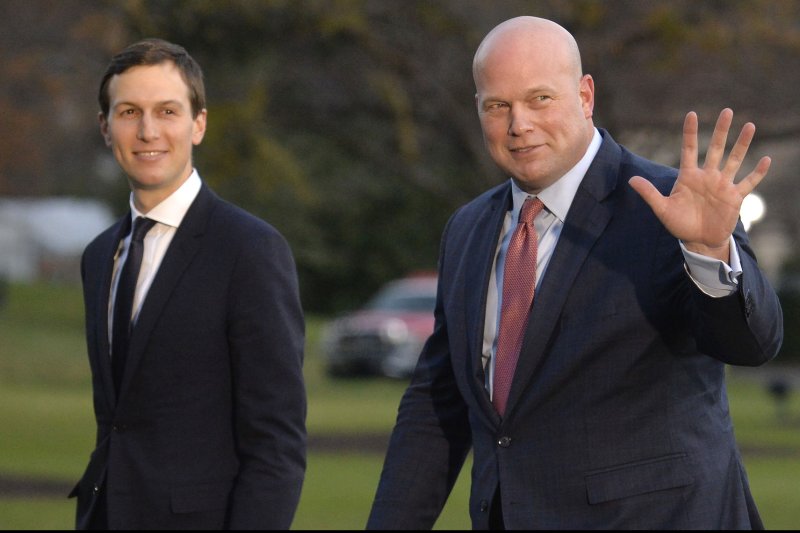Jan. 14 (UPI) -- The U.S. Supreme Court declined Monday to hear a case challenging President Donald Trump's appointment of acting Attorney General Matt Whitaker.
Trump appointed Whitaker, who was chief of staff to former Attorney General Jeff Sessions, in November. In making the appointment, Trump passed over Deputy Attorney General Rod Rosenstein. Opponents of the move argued Whitaker was unqualified for the position, and not confirmed by the Senate.















